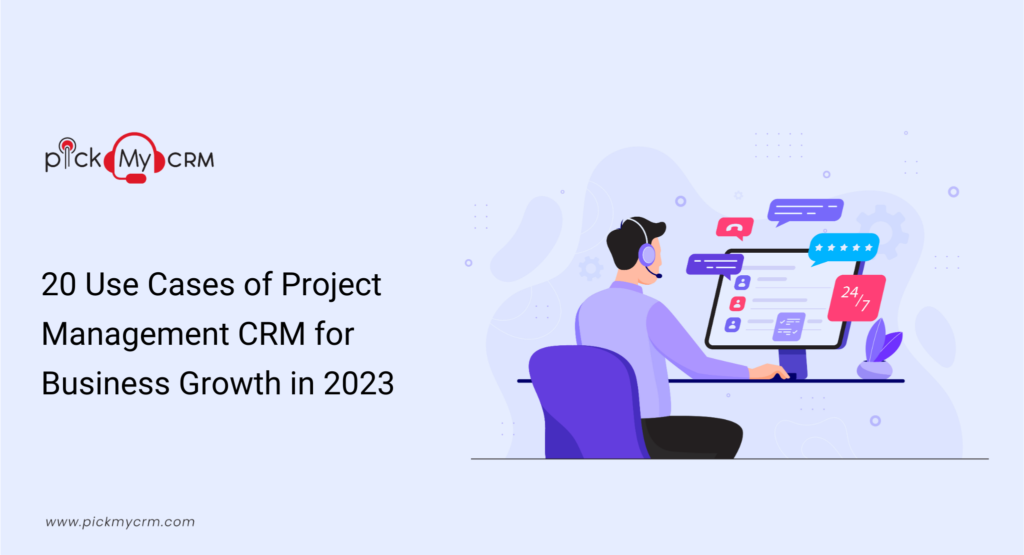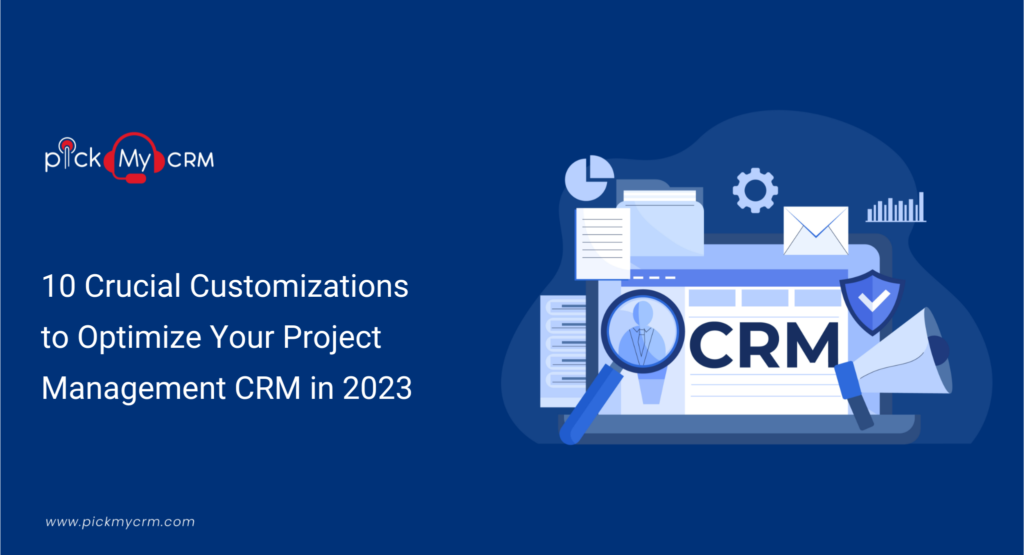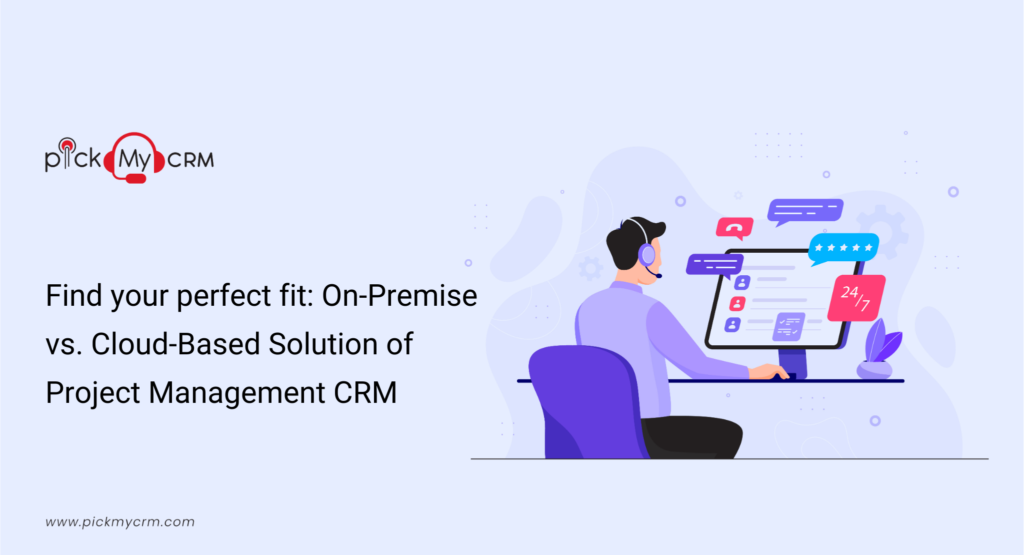20 Use Cases of Project Management CRM for Business Growth in 2023
Recent Statistics and Trends
Before delving into the specific use cases of Project Management CRM, let's take a moment to examine some recent statistics and trends that illuminate the software's current impact on businesses worldwide. Rapid Adoption: A recent survey by a top technology research firm shows a 35% surge in Project Management CRM software adoption in the past year, driven by its transformative potential in project management. Enhanced Productivity: A report by a reputable business consultancy highlights a 20% productivity boost in organizations integrating Project Management CRM. This gain is primarily due to improved communication and streamlined project planning. ROI Amplification: A thorough analysis from a respected financial news source indicates that businesses investing in Project Management CRM achieve an impressive 300% ROI within the first year, attributed to cost savings, heightened efficiency, and enhanced client relations. Cloud-Based Dominance: Recent trends reveal a notable shift towards cloud-based Project Management CRM solutions. The flexibility and accessibility of cloud-based platforms have led to a 40% increase in their adoption rates compared to on-premises alternatives. Mobile Integration: In an era where remote work is the new norm, mobile integration is crucial. Recent studies show that Project Management CRM systems with robust mobile apps are 60% more likely to be favored by businesses for their adaptability and accessibility.20 Use Cases of Project Management CRM
Here are the details of the use cases of Project Management CRM for business growth in 2023,Enhanced Collaboration and Communication
In today's dynamic business environment, Project Management CRM systems serve as central hubs, enabling teams to navigate change and collaborate effectively. They provide shared spaces for communication, file sharing, and real-time updates, ensuring efficient teamwork. Access to project details and client interactions reduces miscommunication, enhancing productivity. Example: A software development company uses a Project Management CRM platform to bring together its development, testing, and marketing teams. Real-time chat and shared task boards allow them to coordinate efficiently, resulting in faster project completion and improved customer satisfaction.360-Degree Customer View
A Powerful Integration of CRM and project management data allows businesses to create a holistic profile of each customer. Beyond contact details, this view encompasses past interactions, preferences, purchase history, and ongoing projects. With this comprehensive comprehension, businesses can customize their offerings, communication, and project deliverables to align with the distinct requirements of each customer. Example: An automotive manufacturer integrates CRM data with project management tasks. They use this combined information to customize vehicle specifications based on individual customer preferences, resulting in more personalized offerings and increased customer loyalty.Lead and Opportunity Tracking
The amalgamation of project management and CRM empowers businesses to track leads and opportunities seamlessly. Every interaction, from initial contact to project completion, is recorded in a centralized system. This information enables sales and project teams to prioritize efforts effectively, allocating resources to projects with the most potential for revenue generation. Example: Utilizing Project Management CRM, a B2B company monitors leads from the first contact to project finalization. By prioritizing high-value leads and aligning project resources accordingly, this strategic approach leads to achieving higher conversion rates.Resource Allocation Optimization
Project Management CRM systems facilitate optimized resource allocation by providing a clear overview of team availability, skills, and ongoing projects. It prevents overburdening or underutilizing employees, leading to efficient project execution and higher employee satisfaction. Example: A design agency identifies that a designer has an expert in web and print design. They allocate projects based on this skill set, ensuring projects are executed efficiently and to the client's satisfaction.Automated Task Management
Automation is a cornerstone of modern efficiency, and Project Management CRM platforms leverage this power. Routine tasks, reminders, and updates can be automated, reducing manual effort and minimizing the risk of overlooking critical project milestones. Example: An event management company uses automated reporting features in their Project Management CRM to generate post-event analysis reports and notify team members about important milestones.Real-time Reporting and Analytics
Integrating Project Management CRM data empowers businesses by providing real-time reporting and analytics capabilities. This data-driven approach enables timely decision-making by providing insights into project progress, customer interactions, and market trends. Example: A tech startup uses Project Management CRM to monitor their product launch progress in real time. They adapt their strategies based on immediate audience response, leading to improved product success.Streamlined Sales Process
Seamlessly integrating project management CRM stages streamlines the sales process. Starting from lead generation and nurturing, the data transitions into project execution smoothly, enhancing customer satisfaction and reducing friction. Example: A construction company receives a lead interested in residential and commercial projects. With Project Management CRM, the sales team smoothly transitions this lead into a project. It ensures that project plans align with the lead's expectations, leading to a satisfied client.Customer Feedback Integration
Customer feedback is a goldmine of insights for improving products and services. Through direct integration of this feedback into project management processes, businesses can guarantee the incorporation of customer preferences and concerns in subsequent iterations. Example: A software company integrates customer feedback from CRM channels into its ongoing development projects. This integration allows them to address user concerns and preferences, leading to the refinement of their products and higher customer satisfaction.Forecasting and Predictive Analysis
The convergence of CRM and project management data enables businesses to forecast market trends and predict customer behavior. Through the analysis of historical data, Businesses can proactively adapt strategies, leveraging emerging opportunities and mitigating risks. Example: An electronics manufacturer leverages historical sales data and CRM insights to predict demand for specific products during the holiday season. It allows them to optimize production and inventory management, avoiding stockouts and overstocking.Customer Retention Strategies
Utilizing CRM insights, businesses can craft targeted customer retention strategies. Personalized offerings, loyalty programs, and proactive communication enhance customer loyalty, translating into long-term revenue streams. Example: An online subscription service uses CRM insights to segment customers based on their preferences and engagement history. They design personalized retention strategies, such as offering exclusive content, resulting in increased customer loyalty and reduced churn.Efficient Onboarding Processes
Integrating CRM data and project management ensures a smooth onboarding process for new clients. From the first interaction to project kick-off, the continuity of information enhances the customer experience and lays the foundation for a productive partnership. Example: A consulting firm integrates client preferences from CRM into project management for new client onboarding. It ensures a tailored and efficient onboarding experience, setting the stage for a productive and long-term partnership.Task Dependency Mapping
Project Management CRM platforms allow for intricate task dependency mapping. This feature ensures that projects progress logically, with each task aligning with the completion of its predecessors, minimizing delays and bottlenecks. Example: Utilizing task dependency mapping within their Project Management CRM, an IT services company visualizes the sequential task order, preemptively avoiding bottlenecks and ensuring seamless project progression.Personalized Marketing Campaigns
Leveraging segmented customer data from CRM businesses can create highly focused marketing campaigns. Personalized messages resonate more profoundly with customers, resulting in heightened engagement and improved conversion rates. Example: An online bookstore uses CRM data to segment customers based on their reading preferences. They then tailor marketing campaigns to promote relevant genres, resulting in higher click-through rates and book purchases.Effective Communication with Clients
Transparent and timely communication with clients is vital for successful project execution. Integrating project management and CRM streamlines communication channels, providing clients with updates and fostering an environment of trust. Example: A marketing agency uses the communication features of Project Management CRM to maintain regular updates with their clients. They share project progress, feedback, and upcoming milestones, ensuring transparency and client satisfaction.Cross-team Collaboration
The synergy between project management and CRM encourages cross-functional teams to collaborate effortlessly. The diverse expertise from various departments fuels innovative solutions, propelling holistic business growth. Example: A manufacturing company coordinates between production, sales, and logistics teams using Project Management CRM. This approach guarantees synchronized progress across all departments and aligns with customer expectations.Risk Management
By analyzing Project Management CRM data, businesses can detect potential risks. Proactive risk mitigation ensures projects stay on course, contributing to timely and successful deliveries. Example: A construction company integrates risk assessment and management tasks within its Project Management CRM. It allows them to identify potential risks, allocate resources for mitigation, and maintain project timelines effectively.Sales and Revenue Tracking
Project Management CRM platforms offer insights into sales pipelines and revenue generation. This visibility aids in accurate sales forecasting and revenue projections, aligning growth strategies with financial goals. Example: A software company uses Project Management CRM to track sales leads and project revenue. It allows them to analyze the most profitable projects and adjust their sales strategies accordingly.Client Satisfaction Tracking
Consistently tracking client satisfaction through CRM data is crucial for nurturing robust customer relationships. Swiftly addressing concerns and adapting strategies based on feedback leads to improved service quality and customer loyalty. Example: A hospitality management company sends automated satisfaction surveys to event attendees through its Project Management CRM. Based on the feedback collected, they implement improvements for future events.Customizable Workflows
The flexibility of customizable workflows within Project Management CRM platforms caters to the unique needs of projects and clients. Tailoring processes optimize efficiency and client satisfaction, resulting in smoother project execution. Example: An architecture firm uses Project Management CRM to design customized project workflows for different project types, ensuring that specific tasks and approvals align with project requirements.Data-driven Decision Making
The fusion of project management and CRM data empowers businesses to make informed decisions backed by concrete insights. Strategic choices aligned with growth objectives pave the way for sustainable success and expansion. Example: A digital marketing agency leverages real-time analytics within its Project Management CRM to oversee the advancement of ongoing campaigns. They analyze the data to make informed adjustments, resulting in optimized campaign strategies and improved project outcomes. Incorporating these use cases of Project Management CRM into your business operations can fundamentally transform how you operate, strategize, and engage with customers, fostering remarkable growth and efficiency in 2023 and beyond.Where to Implement Use Cases of Project Management CRM
The implementation of Project Management CRM use cases finds relevance in several key areas within an organization's structure,- Collaborative Workspaces: Project Management CRM use cases are implemented within collaborative platforms where teams coordinate and communicate on project tasks.
- Cross-Functional Collaboration: These use cases hold Particular significance in departments that demand cross-functional collaboration, guaranteeing seamless communication among diverse teams.
- Sales Pipelines: Integration of CRM data into project stages is crucial in sales pipelines, ensuring a smooth transition from lead generation to project initiation.
- Resource Management Systems: The optimization of resource allocation, guided by CRM insights, occurs within dedicated resource management systems.
- Feedback Collection Channels: Customer feedback integration occurs within dedicated channels designed to collect insights and suggestions directly from customers.




